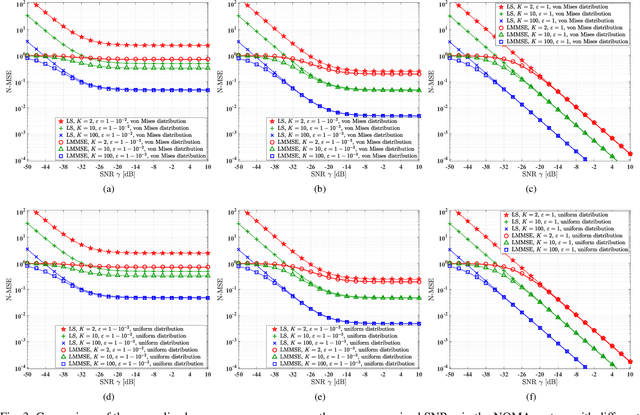Achievable Rate Analysis of the STAR-RIS Aided NOMA Uplink in the Face of Imperfect CSI and Hardware Impairments
Paper and Code
Jun 14, 2023



Reconfigurable intelligent surfaces (RIS) are capable of beneficially ameliorating the propagation environment by appropriately controlling the passive reflecting elements. To extend the coverage area, the concept of simultaneous transmitting and reflecting reconfigurable intelligent surfaces (STAR-RIS) has been proposed, yielding supporting 360^circ coverage user equipment (UE) located on both sides of the RIS. In this paper, we theoretically formulate the ergodic sum-rate of the STAR-RIS assisted non-orthogonal multiple access (NOMA) uplink in the face of channel estimation errors and hardware impairments (HWI). Specifically, the STAR-RIS phase shift is configured based on the statistical channel state information (CSI), followed by linear minimum mean square error (LMMSE) channel estimation of the equivalent channel spanning from the UEs to the access point (AP). Afterwards, successive interference cancellation (SIC) is employed at the AP using the estimated instantaneous CSI, and we derive the theoretical ergodic sum-rate upper bound for both perfect and imperfect SIC decoding algorithm. The theoretical analysis and the simulation results show that both the channel estimation and the ergodic sum-rate have performance floor at high transmit power region caused by transceiver hardware impairments.
 Add to Chrome
Add to Chrome Add to Firefox
Add to Firefox Add to Edge
Add to Edge